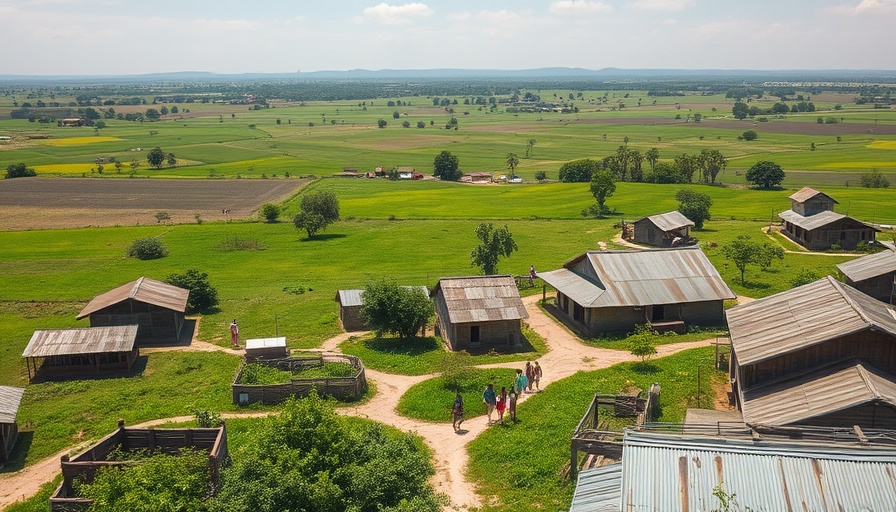
The Rising Threat: Understanding the ADF's Violence
In recent weeks, the Democratic Republic of the Congo (DRC) has witnessed a shocking surge in violence, attributable to the Allied Democratic Forces (ADF). This extremist group has targeted innocent civilians, predominantly in eastern DRC’s North Kivu province, demonstrating a brutal disregard for human life. Reports indicate that over 50 individuals, including women and children, have lost their lives in this latest wave of attacks. As local communities mourn their losses, the international community also grapples with the implications of such violence.
What Drives the ADF's Brutality?
The ADF, described as a terrorist organization, has been engaged in long-standing hostilities in the region. The recent attacks have been characterized by ambushes, vehicle burnings, and home invasions, with entire families fleeing for their lives. According to sources, the ADF’s resurgence may be a reaction to previous defeats by Congolese forces, manifesting in revenge attacks against civilians. This cycle of violence has left thousands of people displaced, seeking refuge in overcrowded camps that lack basic necessities.
Voices from the Ground: Community Perspectives
Local leaders, including church representatives, are at the forefront of responding to this crisis. A church leader from Oicha reported, “They massacred many people here… we continue to ask for your assistance in prayer.” The churches in the affected areas not only provide spiritual support but also practical help to families in distress, embodying resilience amidst devastation. Therefore, their voices must be amplified in conversations surrounding humanitarian aid and support.
International Condemnation and the Call for Action
The ongoing violence has prompted critical responses from international bodies. The UN Stabilization Mission in the DRC has condemned the ADF’s attacks, emphasizing that such actions are intolerable. Jo Newhouse from Open Doors has expressed their condemnation of the violence, urging that protecting civilians must be a priority for civil society and governments alike.
Empathy in Action: How Can You Help?
As Christians and supporters of the persecuted church, it is vital to unite in prayer for those affected by this violence. Open Doors has called upon the international Christian community to pray not only for the victims but also for a peaceful resolution to the conflict. It is through these actions of faith, community support, and advocacy that we can stand against the tide of violence and help rebuild lives devastated by such atrocities.
Conclusion: The Power of Prayer and Support
In a world marked by such turmoil, the DRC stands as a stark reminder of the urgent need for empathy and action. As the situation continues to evolve, we must remain spiritually and materially engaged in supporting those who suffer unjustly. Join the call to prayer and action, and help raise awareness about the plight of Christians and other vulnerable communities facing persecution in the DRC.
Please keep praying for the victims of violence in eastern DRC and consider supporting organizations that provide assistance and advocacy for those affected.
 Add Row
Add Row  Add
Add 








Write A Comment